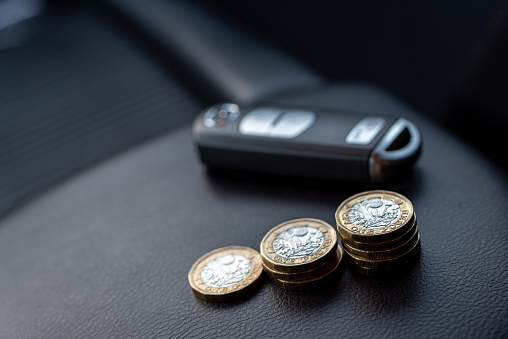
If you have ever applied to get a credit card, leased a car, or have gotten a mortgage on a home, you would be aware of how credit scores matter. However, you might be shocked to know that the credit score can also affect your premiums, just like how your driving record, marital status, and payment history can affect it.
Your creditworthiness—the chance of repaying a loan or credit card debt—is determined by your score. Car insurers, on the other hand, maybe sift through your credit reports for an opposite reason: to estimate the likelihood of you filing a claim. And, according to our price data, if they believe your credit isn’t up to par, they’ll charge you more, even if you’ve never had an accident.
You need to be financially able to afford a car. However, more important is that you should also look beyond your financial issues and credit history because having a good or bad credit history can seriously affect buying and insuring a vehicle.
Listed below are some impacts that the credit score can have on buying and insuring a car.
1. Affects the Financing of Your Car
There are two components of the credit score first is your payment history. It makes up about 35% of your entire credit score. That is why you must focus on paying your bills on time. The other component of your credit score is how much you owe information about 30% of your score. This portion will be affected if you are using a large percentage of your available credit, due to which you will not be appealing to potential finance lenders. It would be best if you kept your credit scores perfect for getting financing for your car.
2. Determining Your Eligibility
Your credit scores also determine your eligibility to get a loan. If you have a history of car repossessions or late payments, your credit score will drop, which will make you unappealing to lenders. These issues on your credit report will make lenders think twice about financing your vehicle. It will make it difficult for you to get a loan or affect your loan rate. Sometimes, if your credit score is considerably low, your interest rate can end up in double digits. That is why it would be an excellent choice to improve your credit score and then apply for a loan.
3. Determining Your Interest Rate
Another important reason you should have a good credit score is that when buying a car or getting a loan for the car, your interest rate would be determined on that. You wouldn’t want or be paying hundreds and thousands more than you are required to pay. That is why you should try to improve your credit score before getting a car. Your credit score doesn’t just determine your creditworthiness, but it also helps the insurance companies know how likely you are to file a claim. If your credit score is low, they would automatically assume that you are more likely to file a claim, which would, in turn, increase your interest rate on insurance. You can also, hire training insurance agents because they would be more likely to help you get the perfect insurance.
Not only would it affect your loan rate, but it will also affect the price of your insurance. You can also get car insurance with low credit, but it would be pretty expensive for you. Bad credit scores can double your bills. However, if your credit score is good, it can lead to significant savings by cutting almost a quarter of the payment.
4. Your Credit Determines Your Payment
The concept of annual interest percentages and amortization interest rates can be pretty tricky to grasp. However, one thing that everyone understands is affordability. In simple terms, your credit score determines your interest rate, which indirectly determines your payment. The higher the credit score would be, the lower the interest rate would be, which would, in turn, reduce your cost of premium or deposits to be paid. It is wise to set up your car insurance with a checking account to make auto payments. This way you will not forget to pay off your premium and you will avoid late fees, increased interest, and a drop in your credit score.
A Good Credit Score
Before you decide on buying a car, it would be a good idea to look at your finances carefully and see which car you can afford. This will improve your credit score, help you finance your vehicle more quickly, and lower your interest rates. Any Financing institute would look at your credit scores whenever you get an asset or decide to get insurance. A credit score shows your financial strength and helps the financers, and the insurer, know your debt obligations, income, or whether you can pay off the loan. A good credit score means more chances of getting insurance with reasonable rates.












